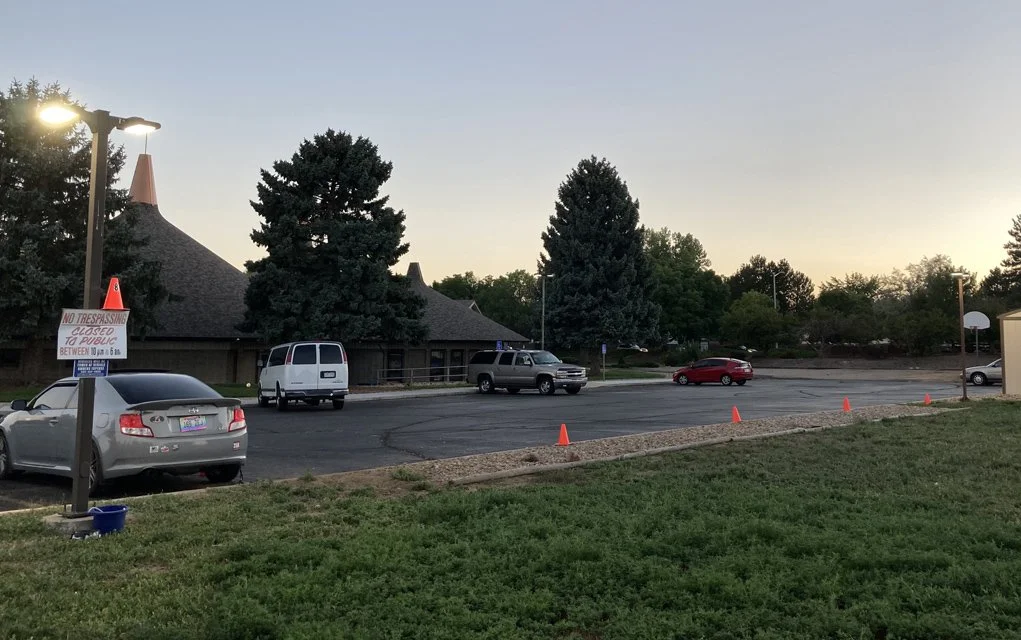Notes from the Executive Director
Denver Expansion
We are very excited that the City of Denver Office of Housing Stability has expanded CSPI’s contract to add two more SafeLots and continue supporting the two pilot SafeLots. This allows CPSI to expand our services knowing that roughly 50% of the costs are secured through 2025. Denver acknowledges that there are more people experiencing homelessness right now than can be accommodated in available housing; SafeLots fill a critical role while Denver works to create more affordable housing options. Even with the two additional SafeLots, demand for safe parking in Denver still outpaces available spaces, but it allows CSPI to grow sustainably as we work to reach more individuals and families in need.
Legal Safe Parking
Since 2020, programs like CSPI, as well as Tiny Homes and Safe Outdoor Spaces operated by Colorado Village Collaborative (CVC), have been permitted under temporary zoning ordinances that were set to expire in December. In June, the Denver City Council made the temporary code permanent under Temporary Managed Communities. This was accomplished through input and support from CSPI and CVC, and testimony from one of our SafeLot guests. Together, these programs are aimed at addressing the needs of the unsheltered population by meeting them where they are and providing the dignity of safe spaces to shelter, hygiene services and support from case managers. The Temporary Managed Community ordinance requires robust community engagement and permits issued will be valid for up to four years. This is great news for CSPI SafeLots and illustrates the success of our pilot sites in Denver.
In May the Denver City Council passed a bill that strengthens street enforcement of parking codes, increasing the risk that those sheltering in their vehicles could see their last remaining shelter impounded and towed. Among other things, this bill would have expanded the definition of a “clunker” (a vehicle that appears to be inoperable or extensively damaged) and would allow them to be towed more quickly (after 24 hours). If passed as written, the new definition would have meant that a car with a flat tire, broken taillight, or expired registration could be labeled “clunker” and towed. This could present a serious problem for people living in their vehicle – which if towed means they have lost not just their home, but also their means of transportation. If that wasn’t difficult enough, it would also mean they would need to pay significant fees and fines. Thanks to quick work by the ACLU and strong support from CSPI and other organizations, concerns with the bill were highlighted and amendments were passed to address the definition of “clunker”, adding an additional 48 hours of notice (for a total of 72 hours) before towing if there is reasonable belief that someone is living in the vehicle. CSPI remains vigilant to ensure this amended bill does not disproportionately impact people who rely on their vehicle as shelter and temporary home.
Program Update
CSPI is eager to find locations for two new Denver SafeLot sites. The recent media coverage of the Denver contract expansion has resulted in an increase in calls from organizations and businesses eager to assist and offer their parking lots. CSPI is grateful for the outpouring of interest and is holding a webinar, July 19 to provide background on what is required to host a SafeLot and how the process works. This webinar will also be attended by communities from around the state that have expressed interest in creating Safe Parking programs of their own. In addition, the media coverage has resulted in a significant surge in calls from people sheltering in vehicles who need safe parking in the Denver area. Although we are excited to be able to expand services, we recognize it will make a small dent in the number of households needing assistance. The costs of providing a SafeLot are at least $90,000 per year when there is a volunteer SafeLot host and already available electricity. When CSPI needs to pay a SafeLot operator (typically we hire an individual experiencing homelessness and living in their vehicle, so they stay at the SafeLot) and must pay for fencing and/or electricity, the startup and annual cost of running a SafeLot can increase significantly.
CSPI is grateful for the foundations, companies and individuals who provide the funding we need to make SafeLots available. A special thank you to everyone who supported our successful June fundraising drive and Barton Institute for Community Action for their matching funds.
Donor Spotlight:
Anonymous Donor Spotlight: Southeast Denver SafeLot – Electrified

